As a prelude to my rant we must first accept that while it would be nice to only do business with the good guys, that's not how the world works. If America didn't play ball with autocrats the Big Mac index would be nearly worthless. It is important that the United States act in it's power as dominant state in the international system to play a stabilizing role. Aside from Israel the entire middle east is made up of non-democratic countries. Thus it follows that to play a stabilizing role in that region we have to sell arms and give military aid to autocrats and monarchs at times. It's unavoidable.
This being said, we should consider our relations with autocrats a delicate balancing act as well. What has been the USA's major mark on the world? One can rattle off a healthy list of accomplishments. We've landed on the moon, put the world on wheels, invented the internet and were the first in controlled aviation. But despite our such marvels over the past hundred or so years technological innovation can be found in many great countries. Who's to say that aviation has been more important than the steam engine or the printing press? One might also look to the World Wars or actions in Korea and cite our military might. However, our military prowess and ability to surmount the seemingly insurmountable can be spoken for by others as well (if not to the same degree in certain areas). The difference between the United States and previous hegemons is that we have used our power for good. Under American leadership the international system has transformed from a tool to guarantee freedom of navigation and interstate postal service into something bigger. It has transformed into an intricate and all encompassing regime that strives to better the lives of citizens of the planet earth on a more human level. We have borne witness to the birth of the very concept of human rights and watched democracy and it's associated freedoms spread across the planet. Is the international order always effective at stopping genocide and ensuring basic human rights? Clearly not. But the point is that it was under our watch that the world first recognized the issue and began to tackle it. This is what history books will say about the United States 1000 years from now and it is for this reason that idealism and ideology should not be granted an instantaneous backseat to pragmatism and Coca-Cola! Of course, while we should be proud of such a distinction it is the very same excruciating duality that makes American foreign policy so much more difficult than that of the British a hundred and fifty years before us.
Being the extreme moderate that I am, the aforementioned juxtaposition has been at the forefront of my while following the events in Egypt. On one hand our country should look out for it's interests. In that sense, the toppling of Mubarak does not at first been in our favor. The first and most obvious reason is that to see a friendly regime toppled is probably detrimental to US influence within Egypt. The new government might or might not be on good terms with us. Undermining Mubarak also sets a precedent. Other friendly autocratic regimes have to wonder if they'll be next. You know, those Abrams tanks may come with an OnStar kill switch and the moment people start demanding democracy the turbines shut off “this is OnStar, we've detected a popular uprising in your region and have dispatched international police forces. Also, it seems you're due for a transmission fluid change if you'd like to schedule that at the nearest GM dealership”. Egypt has also been one of the bright spots in terms of policy regarding Israel. Mubarak has enforced a secular regime and consequently peace with Israel. The next government might not. Instability in Egypt is also bad for markets of any sort given that it's home to the Suez canal. Though the prospect of a new government in Egypt selectively closing off the Suez canal is remote, it's scary enough that it should be called into question. The scenario of the US fighting against it's own weapons to open the canal back up had to have been brought up at least once in the White House.
Yet for all these possible drawbacks, cautious followed by open (if not mild) support for the protesters was the right thing to do. Even if the worst comes to pass and an islamist regime finds itself in place in Egypt, something monumental had occurred. Egypt signifies a huge crack in the dam. Liberty is contagious and we now know that the middle east is not immune. The people there demand it and Islamist regime or not one day it will invariably come into being. Moreover, the nightmare scenarios don't seem too likely. Say (and hopefully this is not the case) elections are not held or they're hijacked by forces already in power. The US was in contact with more people than Mubarak. The Pentagon and State Department have had ties with multiple and various levels of the Egyptian military and government for decades. Anybody from the military that would come to power would already have a pro-US proclivity. We would be right back where we started except with the possibility of a better conditions for Egyptians. What would be terrible would be an Islamist faction winning overwhelmingly in elections and then refusing to relinquish it's control of the government. But Egypt is not a fanatically Muslim country and the protesters weren't railing against the West. From everything I've seen elections probably aren't going to bring in Hezbollah.
Moreover, when we are looking at the long term dictatorships just aren't the answer. To my knowledge modern history has never seen an anti-democracy revolution. Once democratic norms are firmly engrained that state will always be on at least reasonable terms with other democracies. Remember the one law like rule of IR: two democracies have never gone to war. And as a rule democracies don't abuse the rights citizens. The pie in the sky dream of a world composed solely of democratic states may not happen within our lifetimes, whose to say in 200 years? Change will come. Either way, the more democracies there are, the less there is to worry about and the more peaceful the world will be (in terms of interstate wars). Basically, what I'm saying is that Egypt and Tunisia are akin to ripping off a bandaid. If the two (or more) become democratic it will have a stabilizing effect on the region 20 years from now and beyond. Why hold back the dam in the middle east? Let's let Chevron ride in the backseat for this trip.
One thing that's struck me about the Hong Kong SAR is the surprising amount of signs forbidding certain actions. Generally they're understandable. For instance in one park there was a sign saying “no lying on the benches”. The idea is to keep homeless people from sleeping in the park. That makes sense to me (particularly given the amount of squatters huts one finds after venturing outside of the more urban areas). But then again signs like these are everywhere. The extent to which it's enforced is debatable, I've definitely seen people breaking some of the rules in view of cameras. In my opinion it says something about a society when they feel the need to articulate these matters. The question is what?
My first thought on the matter is that Asian countries seem to have more societal norms and minor rules than do western countries. Adhering to these norms is generally more important as well. A friend of mine made the mistake of playing a guitar on the beach in Korea one time. The police were were all over that faux pas. Another example is my experience at the Wal-mart in Kunming. There was a very clearly marked exit but the entrance was more difficult to come by. Upon trying to enter in the wrong end I was very promptly turned away. It seemed a little odd to me. Given that the end game is for people to purchase their products why should they care where people enter through? But these are the rules and they must be abided by.
Another item which didn't escape my attention the last time around was that mainland China didn't seem to be as particular about these matters as Korea or Japan. Now it's very possible that this could be a matter of democracies having a greater tendency to be developed than non-democracies, but from what I've seen and read it seems to me that there is a democratic tendency toward nanny statism. Voters like little things like seatbelt laws and banning trans-fats. It makes people feel warm and fuzzy when they walk out of a voting booth thinking they've made life safer for their neighbors. Authoritarian governments on the other hand aren't affected by such things and if you want to smoke in an elevator in Beijing... why not? So possibly it has to do with HKSAR's particular brand of democracy.
My final and favorite theory pertained to Hong Kong's British heritage. The UK after all is possibly the nanny state to end all nanny states. Perhaps the SAR developed these tendencies under the UK's stewardship. It's also possible that those in government and the electorate in general picked up on British norms and these signs developed alongside the current British padded society but separately.
Sadly, I just don't have enough knowledge on the matter to come to a truly educated guess. The history and culture of Hong Kong just came into my periphery a matter of weeks ago and I'm a complete stranger here. From this vantage point it would take a great deal of research for which I no longer have the resources (oh FSU information databases, how I miss you) nor the time. Perhaps at a later date some theory on the evolution of nanny states will be thesis material for an MS. For right now I'll just have to leave it as probably some sort of combination of all three.
All of the following signs were in the same small park:
The two foot deep Koi pond... err, "pool" in which paddling is not allowed:
Post script: if you would allow me beg of your pardon for what may have seemed at times somewhat obfusticated language in the preceding passage. Most of my reading of late has been of the 19th century variety due to it being free of cost on Amazon's Kindle. As they say a shilling saved is a shilling earned! Despite my best efforts to remedy this particular literary ailment, Sir Arthur Conan Doyle's wordage seems to have put a peculiar spin on that of my own quill.
Today I went on a scavenger hunt of sorts. Hong Kong promotes a series of walking tours which take you past historic sites and buildings. From the get go I assumed there was little chance of actually finding everything on the list, so I decided to make a game out of it and see how many I could take pictures of. It didn't go very well. The fail was in large part due to starting out with partial battery on my phone and no physical map. So the hunt could last only as long as 50% battery life on a Google Nexus One switching between GPS/maps, browser, camera and mp3 player. The heritage trail map online was pretty poor as well and matching it up to google maps on my phone was a trick... even for an expert delivery driver. However, the other reason for the fail might ultimately have been a net positive in that it ended up reinforcing something I'd already known about the place. Most of these buildings, actually all of them, were off limits to the public as they were still in use. This includes a Victorian era prison (edit: I was wrong, Victoria Prison closed a few years ago). Hong Kong is so hard up for physical space it's just not practical to turn the old Government House into a full time museum (it's only open to the public two days a year). The point of this trip is to learn first hand about the way society operates here, so I suppose I can't complain too much. Still unfortunate that the most I could see of Government House was the ornate Victorian wrought iron downward facing spikes on the outer wall.
Walls outside Government House. Notice the camera.
Hong Kong's prison. Easy to pin as from the Victorian era from it's name: "Victoria Prison"
Pretty low tech means of keeping people in, shards of glass.
Not quite Alcatraz. There are literally bars, restaurants and even an auto racing club right across the street.
How quickly we've reached this juncture. Despite a nifty way of getting around the great firewall a friend of mine has helped me out with, the question of exactly how close I should allow my blog to get to some Chinese no-nos has been up in the air. Alas, Hong Kong and ambiguity go hand in hand. A brief history of how we got to where we are today. In the first Opium War in the 1840s the British demanded China cede Hong Kong island to British colonial rule permanently. A few decades later the peninsula (Kowloon peninsula, where I'm staying) just above the island was added to the colony. In 1898 Britain leased yet more of the mainland just above Kowloon, “the New Territories” for 99 years. Fast forward to Margaret Thatcher. British hegemony long waned and with the lease of the New Territories coming to an end the Thatcher government signed the Joint Declaration with the PRC negotiating the return of not just the New Territories, but Hong Kong island and Kowloon peninsula as well. Considering that China held all of the cards (had Kowloon and Hong Kong not been handed back as well the only thing dividing the PRC and British territory would have been a street quite literally named "Boundary"). British diplomacy proved adroit. At the heart of the Joint Declaration was that the Hong Kong way of life remain unchanged for 50 years. The British being the sneaky capitalists they are shortly after the signing of this document in 1984 Hong Kong underwent a crash course in political liberalization. Though PRC objected and it was partially reversed Hong Kong remains somewhat democratic and largely autonomous. Surprisingly so. To understand exactly how autonomous, another piece of history is useful. In 1898 a strange rebellion broke out in China which the Chinese government later decided to roll with in opposition to the western powers. The “Boxers”, (more accurately the society of the righteous and harmonious fist) believed that the brand of martial arts they had developed made them impervious to modern weaponry. Though they are largely lionized in China today, the belief in these magical powers proved destabilizing and ultimately disastrous to the Qing dynasty. As of the last few decades another group has popped up claiming to bestow magical powers unto it's followers vis-a-vis a variation of Tai-Chi. Granted, that's a vast oversimplification, kind of like focusing on Mormonism and it's protective underwear, but the point is that it's spread like wildfire. The CCP decided instead of letting it get to Boxer rebellion proportions to crack down, and did so brutally. Today the group (initials F.G., look it up), however delusional they may be, are persecuted mercilessly. Terms relating to the group are firewalled, their internet activities are restricted and public practice will land one in a prison very quickly (probably one with torture facilities). Placing oneself in the shoes of CCP policy makers you can kind of see where they're coming from. The country has riots regularly and from my understanding there has remained a fragmented movement for political reform ever since the events of two decades ago. If rioters suddenly believed they were impervious to any methods at the government's disposal things could get out of hand quickly. Yet, pragmatic as it may be these actions on the part of the government are a major source of the China's human rights violations. Basically... it's a touchy issue. So you can imagine my surprise when I saw the following: Large, very public displays not only advocating the group but denouncing the CCP as well. The blue banner reads "Heaven destroys CCP". The last one was located by a a statue celebrating the return of Hong Kong to Chinese control and a very popular tourist attraction for Chinese at this time of year. The displays always seem to have people reading the details too. So apparently the British did an exceedingly good job negotiating this fifty year, one country two systems policy and apparently the PRC has good reason to respect the treaty. Two thoughts on the latter: (a) it's to entice Taiwan into coming into the fold, (b) they don't want to kill the golden goose. Hong Kong is a major financial center, why deter capital with archaic political jibber jabber? Either way, kudos to the British. 7 million more people have relative freedom of speech than would have otherwise. And though unrelated, I thought this was totally awesome:
It's a strange thing. Earlier, overlooking Victoria Bay in Hong Kong this feeling of monotony pervaded my mind grapes. Somewhere along the way a very specific sense of awe inside me has been numbed. This isn't to say that I'm completely numbed to life. It's a matter of that which awes me being somewhat eccentric, or small. One sight that dumbfounded me was looking over the harbor in Busan, South Korea. The person I was tagging along with informed me that it's one of the largest in the world. Seeing the massive pieces of machinery integral to world trade and thus our way of life in general took me aback. One in particular was this massive water pump, maybe three or four times the size of my car. That really struck me as cool. Standing outside the Federal Reserve building in DC kind of blew my mind. Getting out into the middle of nowhere in the Appalachians will do something similar to me. Staring long enough at a single car in a junkyard gets my "engine revving" on a human level (people live a large part of their lives in cars, some people are even born or die in them). As to Hong Kong, it's cool. Don't get me wrong. But once upon a time, the very reality of being 12 time zones from home was immensely exciting in and of itself. Today, the Chinese are people just like Americans are and Hong Kong, Beijing, New York, Miami they're just places. And as strange as it may be, my existence here doesn't seem too different from that in West Palm Beach. Proximity simply enables me to partake in different activities.
So it's now less than one week before my move across the world. It's difficult to tell whether the gravity of the situation hasn't sunk in or if I'm just a cool cat. There's a lot to be missed. Driving, decent breakfasts, sunshine, American girls (even if I don't have game they're still nice to look at!). But the last four months has provided me a hard earned lesson, one which is thankfully coming to an end: plan ahead. Applications take time to be written, read, approved, scores take time to be delivered, letters of reference take time to be penned and sent off. Because of this harsh fact the last 1/3 of a year was spent dormant, waiting. To be frank the most exciting aspect of this move isn't as much living in another culture but rather getting to become a productive citizen again and no longer have to live with family. So from herein my next moves and triple redundant contingency plans will be worked on months in advance.
That said, as of next week one thing which is finally coming to fruition is my deep held desires from life in college. “There's a wide world out there... and it ain't in Tallahassee”, I used to say. Watching certain movies, reading certain publications (any 007 flick, the Atlantic) would make me feel like I was not living life to it's fullest potential. While I utilized Tallahassee nearly to it's full potential, to utilize the world to that end required living somewhere else. Pieces of that world are in south Florida, but not for recent BS grads. South Fla is for the established or the exceedingly well connected. Dalian, China though, that is out there. That's living life.
A former roommate of one of my friends once told me he wanted to live “near the fire”. This was his reason for residing in New York, possibly moving to LA. China is the fire. This isn't necessarily because some people think China will continue a meteoric rise unabated and overtake the US. I've made no secret of my doubts regarding their economy. Rather, when in China you can tell that something big is happening there. The transition of their society is palpable. You can practically taste it in the air (between gasps of industrial exhaust). My term for China is the “Wild, Wild East”. Whatever the future holds, China has 1.3 billion people, and worldwide there are something like 1.1 billion speakers of standard Mandarin. The US needs speakers of their language and citizens who are adept at dealings within China. While Tallahassee was a security bubble for tens of thousands of college kids from South Florida, China is a bed of pulsatingly glowing embers, vociferously consuming what may come it's way. Step back everyone, Nylon's tossing in a Christmas tree.
Going too into detail on this one would probably be a mistake. The days of melodramatic sobbing into the world of cyberspace are long past and given the type of blog I'm shooting for here overshare is a constant worry. However, at times a kernel of wisdom is too important to be passed on. This is actually one I've learned and lived by for years now, but it was illustrated to me in a most surprising manner once again a about thirty minutes ago: Very few people or institutions are ever "on your side". Any rational being or entity is ultimately looking out for his/her/itself. This being the case rational beings or entities are only on your side so long as your interests align. Placing faith in someone or something because you have a gut feeling leaves you susceptible to a cooperate/defect game theoretical outcome in which the other party achieves their goals and you are completely shafted. This is not to say don't trust anybody or anything. Without some degree of trust society would just freeze up and be a terrible place to live. But within trust there is nuance. Similarly, the plans one may lay which rely on trusting a person or institution should be nuanced as well.
What's most unfortunate about the situation is that the more people protect themselves the less trust there is in total. An atmosphere of trust within society is a public good. For instance, two months ago I sold a guitar amplifyer. There was a potential problem with the amp and the gentleman who wished to purchase it had driven up from Miami (60-70 miles). To meet up again was no simple matter. He extended some trust thanks to an initial conciliatory gesture on my part which indicated I possessed a scruple or two and a promise made in good faith not to spend his money until everything had been straightened away. A few days later he called with a plausible story about the condition of the amp, we renegotiated a price both parties considered fair and walked away happy. A modicum of trust enabled David to have an amp of superior quality and saved me the hassle of taking it to a shop and trying to find another buyer. By each of us trusting one another the maximum collective utility of the sale/purchase of the amp was realized. Alas, situations like this are few and far between.
For an honest person there's only one way to deal with such a reality: simply be prepared to get screwed over. Until then operate in good faith, and work under the assumption that the other party will do the same. Hopefully they do to such an extent that eventually the other party's long term interest of continuing the relationship in good faith outweighs any short term misalignment of interest. And if not... well, at least you were ready for it.
There's been so much focus on Sarah Palin's crosshairs map. It reminds me of the kerfuffle during the 2008 election over the number of heads of states that she had met. The McCain campaign hurriedly rushed good old Sarah from country to country meeting rulers who gained legitimacy from meeting with a sitting US Senator and presidential candidate. After she had been to five or six countries the McCain campaign seemed to say “see, now she's met heads of state”. The entire point was that her lack of relations with foreign leaders was indicative of her foreign policy inexperience. Likewise, this crosshairs map is indicative of the type of tone she was striking. There seem to be a lot of people who don't get that. But beyond the outsize place in the debate this simple map has been given I'd like to point out that it's probably not even the best example of the national debate having become so corrosive. War and sports metaphors have always been a big part of our political discourse. Sarah's “don't retreat, reload” statement may be 'neck and in poor taste, but it's certainly not what would drive a madman over the edge. In the end one can tell that Sarah's gun references are slightly playful and primarily meant to remind voters of her supposed huntress roots. ( Sarah missing a caribou five times and not seeming to know one end of the gun from the other on her own show). If Sarah's words are to be “targeted” so to speak, the real issue lay in statements like her death panels assertion. Or when she led voters to believe that Barack Obama was essentially a terrorist. The real issue isn't martial word choice, it's when national figures fabricate a story so dire that it leads some to think that voting just isn't sufficient. Let's venture into the mind of someone who owns one or more books by Glenn Beck. Say for instance, that the president was a radical Muslim with ties to terrorists who wasn't even born in the United States. And now let's say he wants to turn the country into a statist system similar to North Korea. He wants to take away your means to defend yourself from that, hike taxes up to ridiculous proportions and then throw you in a concentration camp if you don't pay up. The opposition doesn't have the gumption to stop him and most of the country doesn't seem to care. That's a problem. That's like, a BIG problem. At the same time people one a national news network regularly tell you that an armed revolution might be the only way out. There must be something to what they say for them to reach millions of viewers. I mean, there are politicians even who speak of “second amendment remedies”! For somebody that doesn't quite have their head screwed on straight sacrificing their freedom to take a few shots at a congresswoman might seem like a noble thing. Conservative media doesn't need to spew all of this. There was a real debate within the healthcare bill. It didn't have to be about fake death panels. There is a real debate about government spending without purposefully confusing European socialism and Soviet socialism. In fact, within just about any issue on the political docket of this country there exists a real debate. Glenn Beck pouring gasoline on one of his aides isn't necessary. It is my opinion that if everybody in the country read the Wall Street Journal, the Economist, and the CSMonitor, and the NYTimes instead of watching Andersen Cooper and Hannity this wouldn't have happened. The conservative media's M.O. is to scream that the sky is falling. To get ratings their liberal counterparts have to be just as shrill or even more so. And who hears this on a nightly basis? One of the most heavily armed populations in the world. “The sky is falling” is the problem, not idiot Sarah Palin's stupid map.
My first thought was “I bet you he watches Glenn Beck”. The circumstances regarding the shooting of Arizona Representative Gabrielle Gifford are still hazy, but it appears that my first characterization was incorrect. It seems that Jared Lee Loughner was not a tea party fanatic bent on “watering the tree of liberty”, but that the driving force was mental instability. However, though the essence of my first suspicion was wrong, I still stand by the face value of the words.
Every night Glenn Beck goes on national television and screams and cries and bemoans the loss of all that is good. He poses apocalypse scenarios, talks about the death of democracy and infers that an armed revolution may be the only course of action. (Infer is the key word, he says everything short of “go get your guns and march on the Capitol” and then later denies it.) The very premise of the tea party movement is vaguely militant. Remember that it's named after the prelude to a revolutionary war. But whether millions of fervent (and armed) people can tell the difference between rhetoric and real life isn't even the point anymore. The issue here is that Glenn Beck and Sarah Palin discuss our domestic politics within a frame of morally just revolutionary violence. Constantly. It's become a prominent national meme. Even if the shooter disagreed with Beck and friends, the point is that more militant of the FNC crew have tried very hard to work this atmosphere of instability into our national psyche. It worked on at least one person and now six are dead and many more are wounded. How many more innocent people must die before Fox News reigns in their psychos and Sarah Palin uses a little more tact?
As a side note to the Tea Partyers: Cuba, North Korea, China, Iran the Soviet Union, these are states that make constant reference to their revolutions. Do you really want to be among their ranks?
Greetings readers. I write to you on a new dawn for nyesmind. The original purpose for this blog was to document some of the travails of my last semester of college spent abroad in Tianjin, China. Two things occurred. The first was that I found a way to subvert the great firewall and access facebook. After being once again connected to our ever ubiquitous social networking site, nyesmind no longer was my main line of communication with the digital world. The second was that weebly started to give me issues in terms of uploading pictures. The first made blogging a chore, the second made it a big chore. However, this time around things are going to be a little different.
Somewhere in Yunnan province the masturbatory nature of my travels hit me. Traveling alone kind of sucks. Yet, that I've nobody to travel seems to be a fact of life that will remain for some time to come. Further, one does not learn about Japanese culture by visiting the imperial palace. One learns about a society's culture by purchasing toothpaste, riding the subway, getting lost kayaking. So what the hell was I doing, temple hopping all by myself? Sure these places were kind of neat, but did they really justify the massive investment such a trip called for? Moreover, what the hell was I planning on doing in my future travels? Earlier tonight the answer came to me. Nyesmind. It shall be my traveling raison d'être. Hmm... actually, that sounds a little bit much. Let's dial it back a little with a qualifier. “At least for the Hong Kong portion of my next trip”. Maybe even one more. “Or certainly an important facet of my day to day life at any rate”. That works. One or two entries a week is a good enough reason to wake up and take pictures of things.
But beyond Hong Kong, Nyesmind will serve a further purpose. Starting in March my main focus in life is learning Mandarin at Liaoning Shifan Daxue in Dalian. Hopefully after a year or two I'll come back to my home country with a skill set worthy of a living wage. During this time a meticulously kept weblog should help to keep my English language skills intact, keep me sane, push me to a more adventurous lifestyle all the while documenting my experiences for posterity. Dalian seems to be quite an interesting place too. Within spitting distance of North Korea, I'm told it's a destination for Korean refuges. As a port city Dalian attracts an eclectic mix of non-western foreigners, yet at the same time it is one of China's more modern cities. So over the next few years expect more out of nyesmind.weebly.com. Hopefully it will serve us both well.
|
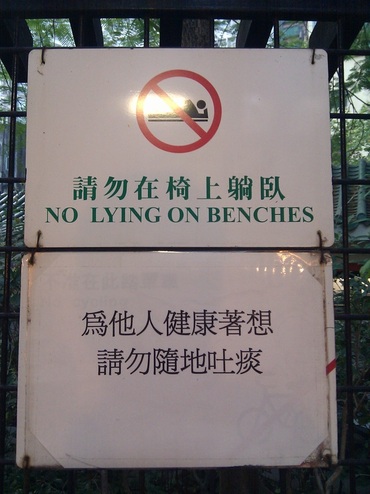
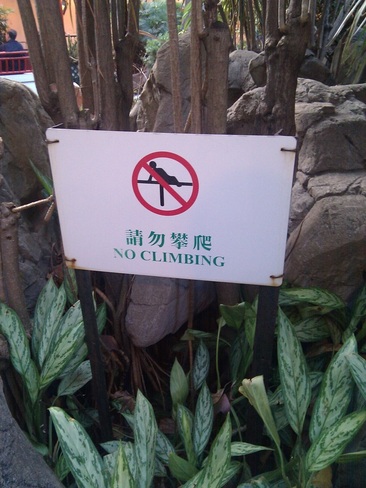
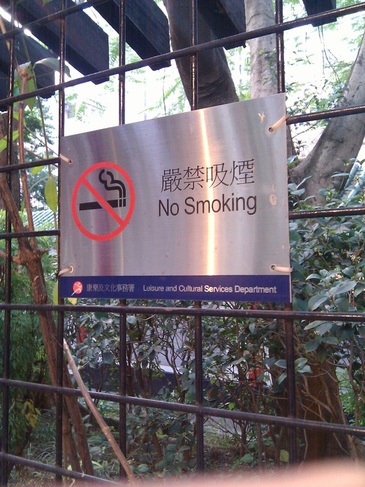


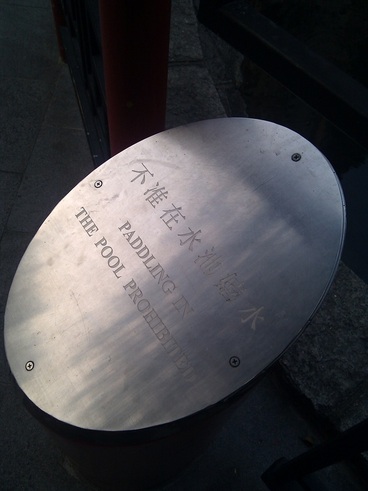
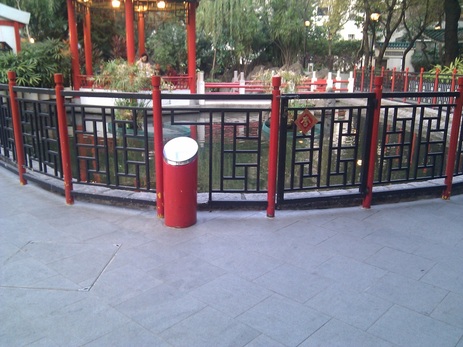
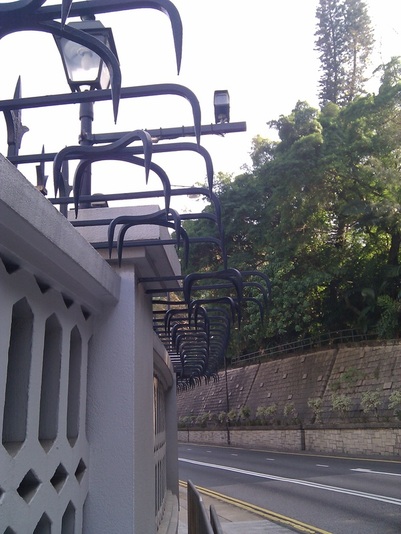

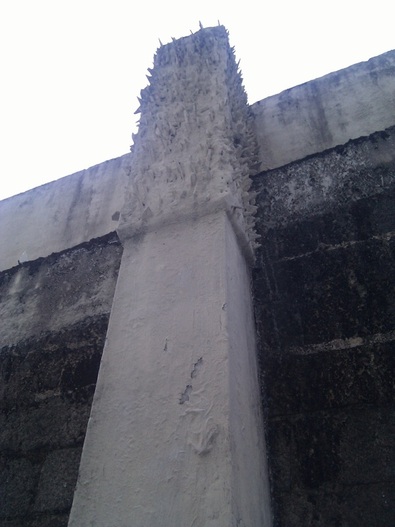
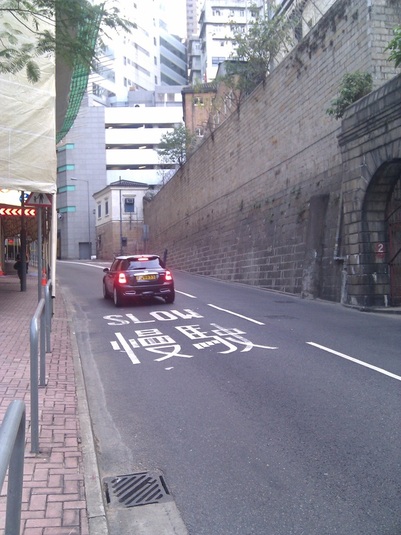
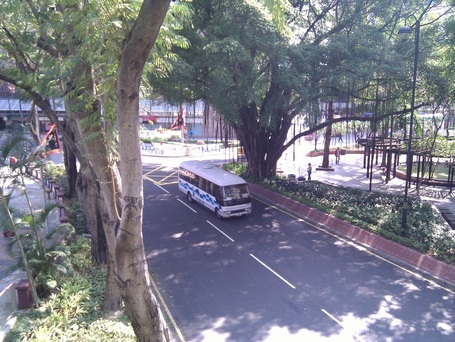
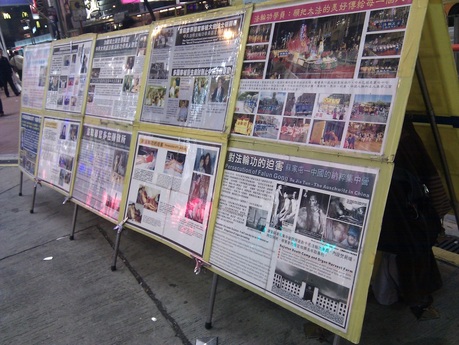
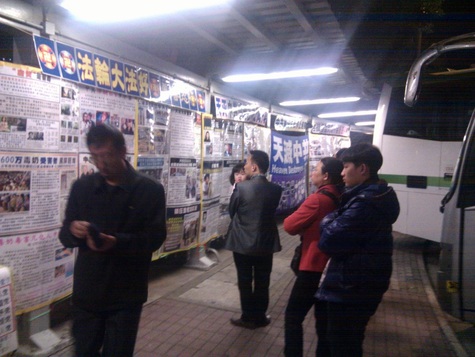
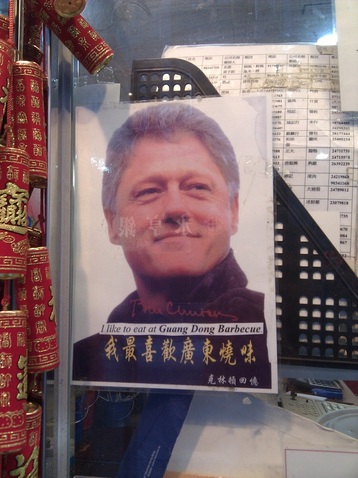

 RSS Feed
RSS Feed